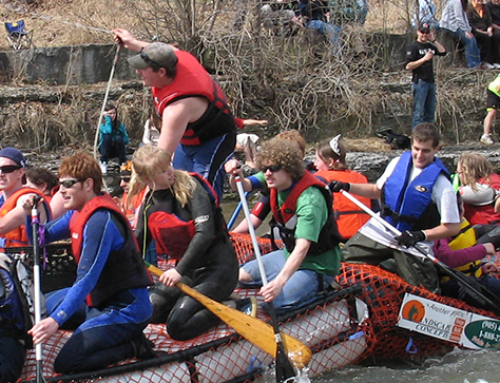We hear everyone talking about it and see others doing it but what is it really and would it be right for us?
Well the answer is not necessarily obvious or easily arrived at. We’ve spent a lifetime accumulating homes, cottages, art, tools, appliances, toys, possessions of every description and now we’ve come to the time of our lives when we can enjoy them – maybe. So what is all this business about downsizing?
In most instances it simply means “Less is more”. Since, as we get older, our day to day needs have become smaller, narrower and more focussed and we don’t need the totality of all the things and life style we’ve accumulated over the years.
There are several possible reasons to downsize:
- Utility – Some of our possessions have lost their usefulness. It may indeed still work or function as perfectly as the day we bought it but we simply have no present or perceived future use for it.
Many of the things you are saving have no useful function in your life today, or for that matter, in your future life. Yes, they still work, but so what. We all say silly things like …
“Oh well I’d like to use that again when I’m retired.”
Fuzzy Logic – The actual odds are about 10:1 that you won’t use it when you are retired.
“I’m sure that’s going to come in handy some day.”
Fuzzy Logic – If you haven’t looked at it in the last three years it will never come in handy – some day will never come.
“I paid a lot of money for that – I’m not going to get rid of it”
Fuzzy Logic – You may have paid a lot of money for it originally but it’s not worth that now
“That was a gift from Aunt Nellie – I can’t get rid of it.”
Fuzzy Logic – Aunt Nellie died eight years ago – she doesn’t care any more
In fact it’s all fuzzy logic.
- Inheritor – There is no-one amongst our family or friends who will either want our possessions or be in a position to take them.
The first and most important rule of downsizing is:
THE KIDS DON’T WANT YOUR STUFF – GET RID OF IT.
They have their own ideas about what constitutes good junk – let them clutter up their own lives with their own junk.
Now to be fair, when my wife and I finally go that great Garage Sale in the Sky everything we have will go to them. Can they use it all or even a portion of what we have – the answer is definitely no. So let’s help them out by starting to get rid of what we don’t need and we’re pretty sure they won’t need either.
- Money – Our possessions are costing money to keep – a lot of money in some cases – for only marginal usefulness.
This is often the hardest fact for people to believe but it’s worth taking a little time to try to see it through the money lens. So let’s for example assume we’re talking about a single box of decorative household items that have been sitting unopened in our basement for 3 years or more – contents unknown – known as the “Mystery Box”.
First, the contents of the box probably cost us money to purchase. The current value of the goods in the box keeps going down over time. This is our Depreciation Cost – the longer we wait to get rid of it the bigger the Depreciation Cost becomes.
Second, the box is really just a representative of the 20 or 30 or more Mystery Boxes we have collected over the years. We have been buying houses, cottages, garages and storage lockers larger than we need just to store these boxes. How much have we spent over the years buying excess storage capacity to keep things that we have lost track of. This is the Storage Cost – the more we have, the more it costs.
Third, since the contents of our mystery box in its present state, clearly has no value to us why not turn it into cash? If we took the money from the sale of all our Mystery Boxes and invested it in your RRSP wouldn’t it generate interest – interest that we’re not earning now from the Mystery Box? This is what’s called the Opportunity Cost – the cost of inaction.
- Life – We are all so busy repairing, maintaining, cleaning, storing and shifting things to find other things that we have forgotten what life could be like without the bondage that our things have imposed on us.
Life is about people – not things. Our things weigh us down like hundreds of little anchors. We spend countless time, money and effort storing, cleaning, insuring, protecting, maintaining, securing and hiding our things.
Are there any of your “things” that you’d trade for a friend? Spend more time with your friends, travel, go to an art gallery, join a charity, whatever gives you satisfaction or pleasure. Have a life.
- Health – As we age we need to be mindful of our access to rapid and sophisticated health care in the form of labs, clinics, specialists and hospitals as well as emergency services.
While Ontario’s health services are extraordinarily good we must consider such things as weather extremes limiting our access to care – weather events such as snowstorms and our distance from services are often factors that we forget to consider.
- Location – Our access to our friends are vital to most of us and when they start to move to other locales we need to start thinking about our quality of life. Do we really want to experience another Canadian winter at our age?
At the end of the day it’s all about the time we spend with other people – time with the people we love constitutes a happy life. It won’t be the time we spend with things.
In conclusion, I’m sure you have been contemplating many of these issues. The purpose of this first article is to help you puzzle it through. The hardest part of this journey is getting started. In subsequent articles I’m going to discuss ways to help you get started and ideas for disposing of your possessions in ways that help others as well as yourself.


